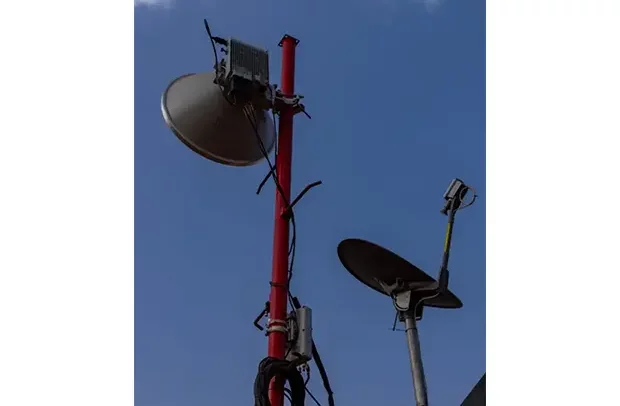One of the e-Transform projects
The Ministry of Communication and Digitalisation with financial support from the World Bank e-Transform project has made significant strides by providing high-speed internet network to 951 government institutions across the country.
The e-Transform Project has revolutionised digital infrastructure and has the potential of ensuring that every part of the country has access to high-speed internet and modern communication tools as well as improve the efficiency and coverage of government service delivery using Information and Communication Technology (ICT).
The project implementation, which started in January 2015, was restructured by the Ministry of Communication and Digitalisation and the World Bank in January 2018 to re-focus the project for accelerated development objective attainment.
According to the ministry, some of connected sites and agencies are courts, 42; Driver and Vehicle Licensing Agencies (DVLAs), four; Ghana Meteorological Agency (GMET), one; Health, 97; Metropolitan, Municipal and District Assemblies (MMDAs), 283; National Information Technology Agencies (NITAs), three; Government Integrated Financial Management Information System (GIFMIS), 95; Police, 255; Post Offices, 169, and universities, two.
The ministry added that the e-Transform Project, the foundation of the Digital Ghana Agenda, focused on several key areas such as enabling environment for digital Ghana, e-government and business focusing on policy, regulatory, and institutional capacity building to promote electronic services, support innovation centres, and enhance government data management.
Minister of Communication and Digitalisation, Ursula Owusu-Ekuful, who emphasised the transformative potential of the ongoing connectivity project, said “the e-Transform Project is a game-changer for Ghana which would not only improve connectivity, but enhance access to information and services.”
She said the project is a testament to Ghana’s commitment to building a digital economy that benefits all Ghanaians as well as drive economic growth and social inclusion.
According to the minister, the e-Transform Project is aligned with global efforts to promote digital inclusion and ensure that developing countries could participate fully in the digital economy, which ends on June 30, 2024.
She said as part of the project, Backbone connectivity was extended to 254 district centres, significantly expanding from the initial 69 centres which include crucial systems like the GIFMIS and the Ghana Revenue Authority’s Tax Revenue Integrated Processing System (TRIPS), and Last mile connectivity that is aimed at serving over 2,000 Municipal District Assemblies (MDAs) across the country.
“The government network connectivity (Backbone and Last mile), with a minimum of 1Gig capacity has been provided to 951 government institutions across the country on a 10-year indefeasible rights of use (IRU) basis. All the planned sites have been connected, validated, and passed Final Acceptance by NITA,” she stated.
The e-Transform Project continues to enhance the efficiency and coverage of government services through strategic ICT integration, fostering digital inclusion and socio-economic development across the nation.
The Ministry of Communication and Digitalisation is actively involved in various projects aimed at improving the country’s digital infrastructure which include National Broadband Infrastructure aimed at expanding broadband connectivity across Ghana, particularly in underserved and rural areas, and also ensure widespread access to high-speed internet essential for economic growth and development.
Others are Ghana Rural Telephony and Digital Inclusion Project that focuses on providing telephony and internet services to rural communities by building infrastructure and providing necessary tools to bridge the digital divide and enhance digital literacy, and Ghana Agenda which encompasses multiple projects aimed at digitising various aspects of the economy such as e-government services, digital financial services.
The rest are National Data Centre Project to support the increasing demand for data services and storage with established national data centres to provide a secure and reliable environment for data hosting and management crucial to meet the needs of both the public and private sector, and ICT for Accelerated Development Policy framework that guides the development and implementation of ICT initiatives in Ghana to support a robust ICT ecosystem.
“These projects and policies are part of Ghana’s broader strategy to harness the power of technology for socio-economic development, improve public services, and enhance the quality of life for its citizens,” the minister added.
By Ebenezer K. Amponsah


